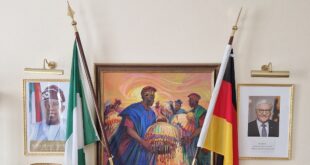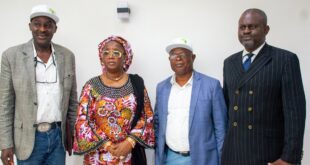How to support Africa’s recovery from the impact of the Covid-19 pandemic through increased multilateral co-operation was the focus of G-PAD 2020, which took place on 27-28 November. Several speakers at the virtual conference, organised by the Germany-based global non-governmental organisation Lead Africa International e.V., agreed that the global crisis had revealed the fundamental structural weaknesses in African economies and they advocated what should be done both in the short and longer terms to address these weaknesses and restore the continent to the path of sustainable economic development. Femi Awoniyi reports
——
Attended by more than 400 participants from 32 countries around the globe, the 2020 Global Partnership for African Development (G-PAD), which took place online due to the coronavirus pandemic, featured speakers from Africa, Germany, the UK, Japan, and the Netherlands, among others.
In her keynote intervention on the second day of the event, Her Excellency Mmasekgoa Masire-Mwamba, Ambassador of the Republic of Botswana to Germany, said the global health crisis had been particularly hard on Africa, posing severe challenges in the short term to the continent’s economies.
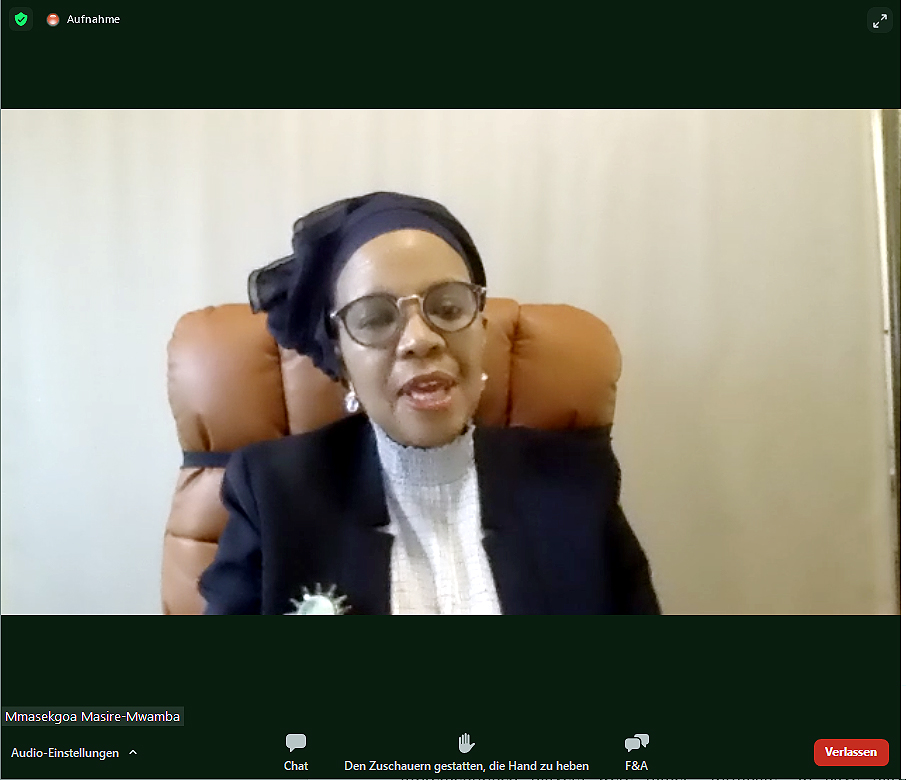
The diplomat, who has more than 30 years of senior level experience in international civil service, explained that the resulting contraction of economies caused by lockdown measures meant governments could not generate enough revenue to address the challenges caused by the pandemic, including increase in unemployment, drop in income of those in the informal sector and acute distress among the very poor.
Exposed fault lines
“Corona exposed the fault lines in Africa, such as the place of essential services in the collective welfare,” Ambassador Masire-Mwamba said. “The carers are undervalued in our environment. How do we define essential services?” she asked.
Mwamba listed the fault lines as the widening inequality between those in gainful employment and the jobless, those in the formal and informal sectors, between men and women.
“We have to make the critical connection between health and a healthy economy; reconciling the twin challenge of life and livelihood,” she advocated.
The pandemic had also exposed the structural weaknesses in African economies, such as inadequacies in the productive sector, the ambassador opined.
“How resilient are we in our productive sectors? How well equipped are we able to respond to external challenges such as disruptions in the international supply chains of essential goods?” Mrs Masire-Mwamba again asked.
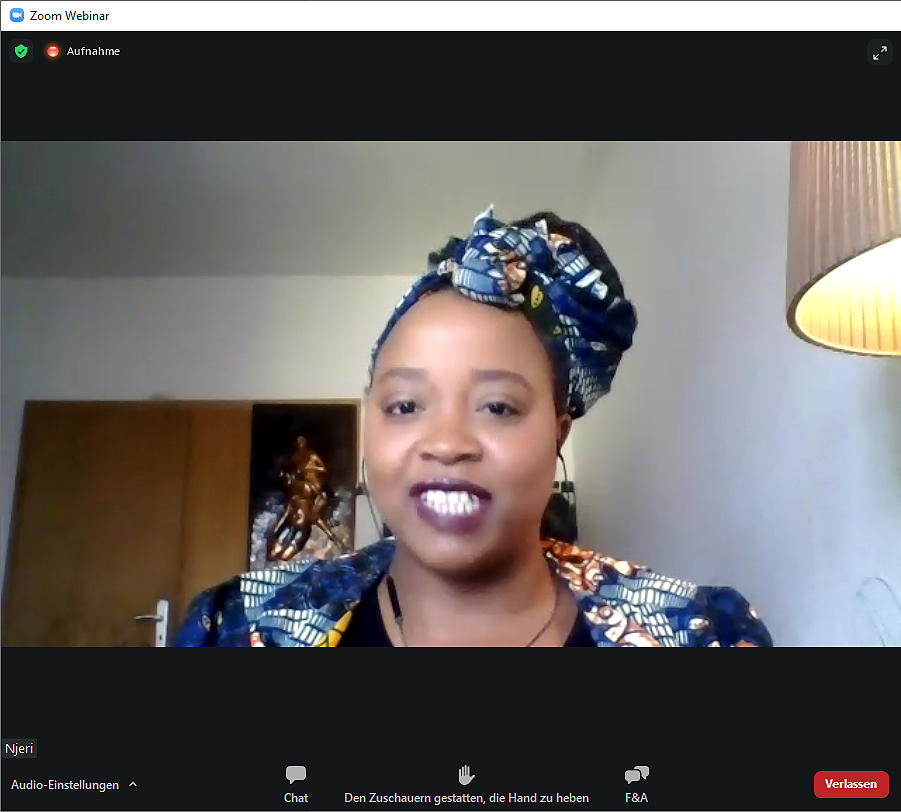
To enable Africa recover from the pandemic-induced problems, the youths must be empowered through training to equip them with skills necessary for the recovery efforts in the short term and to address the vulnerabilities exposed by the health crisis in the longer term, she said.
“The youths should be the custodians of the pandemic response.”
Ambassador Masire-Mwamba summarised the challenges Africa faces in its recovery efforts as those of nation-building, delivering fairer societies, creating more jobs and interrogating partnerships.
“The call to action demands that we interrogate partnerships, leadership and resources,” the Botswana envoy said.
“Partnerships between government and private sector is needed to respond to the multidimensional challenges of post-Covid recovery,” she opined. “Government cannot do it alone, they need the support of private sector.”
“We need partnership with civil society actors,” the ambassador said. “They have shown that they are important in development as they know what the people need at the community level and how to keep people together which they have shown during the pandemic.”
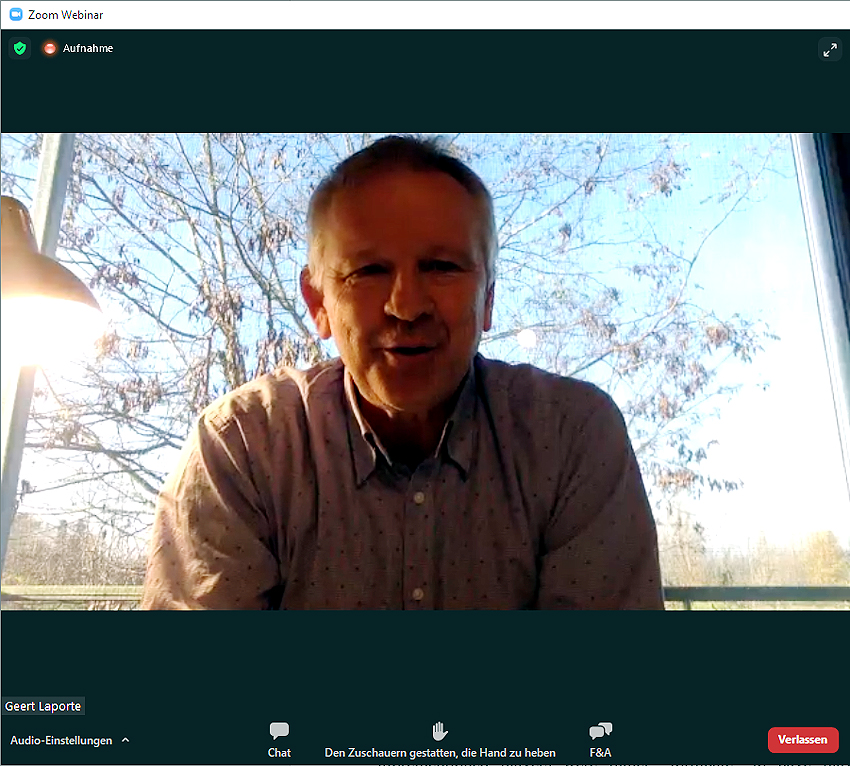
The ambassador said partnership between Africa and the developed economies was also required to restore disrupted trading relations.
“Securing the support of international partners is crucial to the ability of the continent to successfully recover from the setback caused by the pandemic,” she said.
The envoy warned that business confidence was not going to get better any time soon. Restoring business confidence “would require detailed public policy and planning and project development”.
Masire-Mwamba called for a focus on increasing local productive capacity to address the vulnerabilities identified such as in the supply of necessities of life including food and medical supplies.
Moreover, African countries have to work with international partners to maintain interest in the continent’s tourist offerings.
Changing economic structure
In his own intervention, Geert Laporte, Deputy Director at the European Centre for Development Policy Management (ECDPM), said the Booming Africa narrative was over and not only because of the pandemic as African economies were already slowing down before the outbreak of the global health crisis.
He posited that the pandemic had only exacerbated the macroeconomic weaknesses in the continent.
Mr Laporte, who is also the Director of the European Think Tank Group (ETTG), identified three areas that deserve especial attention.
On the economic front, he described the crisis facing post-Covid Africa as characterised by a debt crisis, low remittances going to the continent, massive job losses, rising poverty levels and collapse of commodity prices.
“There will be a substantial downturn in economic output that could amount to 100 billion euros,” he sadly predicted.
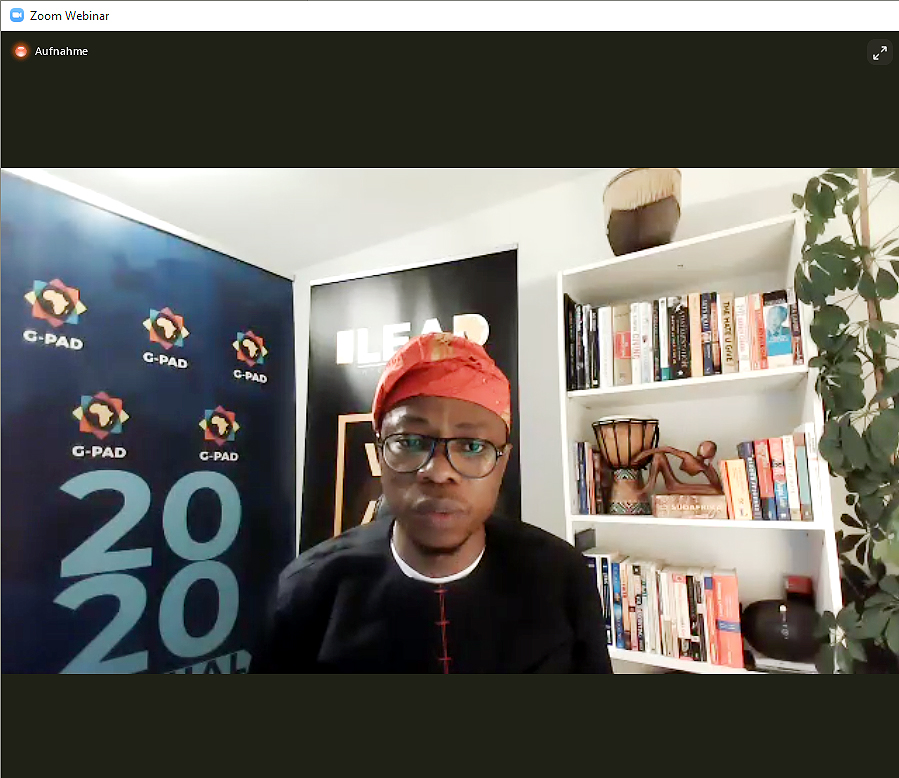
Beyond the economic crisis, he added that Africa was confronted with a deteriorating peace and security situation as shown by the war in Ethiopia and Islamist insurgencies in Mozambique and the West African Sahel region.
Moreover, the scholar was of the view that the continent was experiencing a “backslide in democratic governance”, citing the example of recent “worrying elections” in Tanzania, Ivory coast and Guinea as well as the unconstitutional change of power in Mali.
In the short term, Laporte agreed with the almost universal view of economists that more money would have to be invested in Africa while debt repayment terms would have to be renegotiated to give African countries the fiscal space to pursue recovery plans.
READ ALSO Africa needs $100 billion in aid over coronavirus pandemic – AU finance ministers
However, in the medium to the longer term, he said Africa should use the pandemic as an opportunity to carry out fundamental structural reforms.
“Africa has to boost its internal productive capacity to become more self-sufficient,” he said.
Laporte named several policy actions needed to stimulate growth.
“Improve the sustainable value chain by investing in manufacturing and industrialisation,” he advocated.
“African economies predominantly depend on export of raw materials and they import processed products made with those raw materials they had exported,” he pointed out.
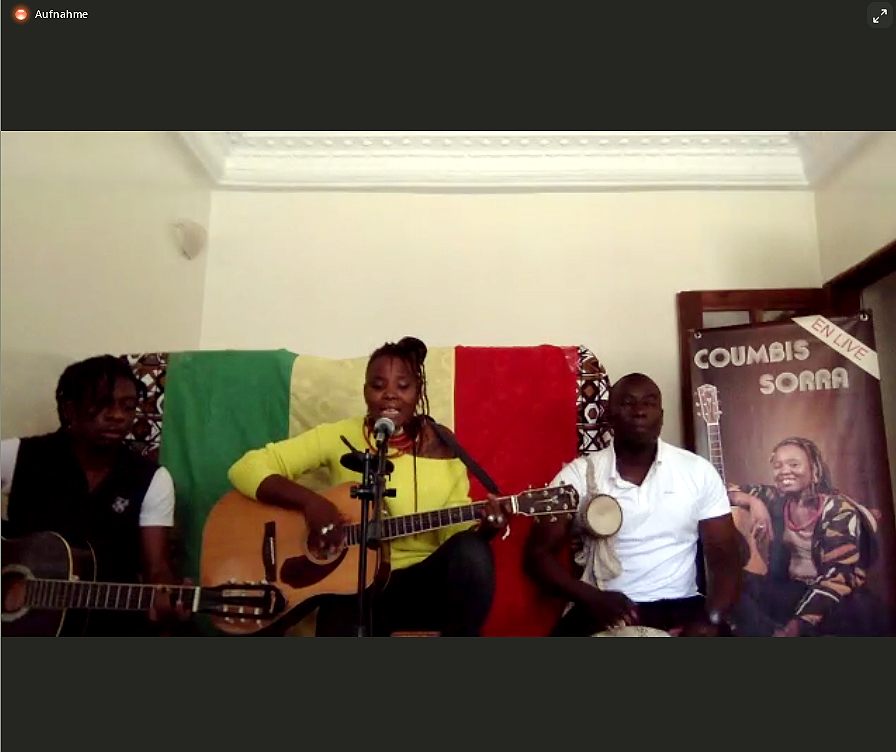
“It’s important for African economic wealth that it can locally transform its raw materials into competitive finished products. Hence the focus on manufacturing value chains is absolutely important.”
Laporte also mentioned regional integration and intra-African trade as important to build regional economic resilience.
“Only 15% of trade in Africa is intra-African trade at the moment, which is very low,” he said.
He praised the African Continental Free Trade Area (AfCFTA) pact but held that there was still a lot to be done to realise the promise of the agreement.
“Intra-African trade is absolutely needed for Africa to flourish.”
Most important, however, is that Africa had to focus on domestic resource mobilisation, Laporte advocated. He said the average taxation rate in Africa was below 15%, which he described as too low.
“Governments should mobilise domestic resources through fair taxation and income redistribution systems, which are the absolute guarantee for social stability,” the expert opined.
Fixing governance for progress
At the tail end of his presentation, Laporte admitted that most of what he had proposed were not new; they had been said in other forums and many times over.
“We know more or less what should be done. What I have said here is not new. The task is how to make these changes happen in Africa,” he noted.
“In the discourse on growth and economic development in Africa, there is one element that has often been forgotten in the past; that we have not given enough attention,” he said. “It’s the governance dimension.”
“Though it’s a basket concept but we all know what we mean by governance, which is the ethical conduct of public affairs by leaders,” he said, adding, that “it is independent judiciary and the rule of law; it’s transparency and sound financial management of a state’s resources, it’s accountability, it’s a participatory, consensus-oriented and inclusive type of society.”
“We should invest more in a new type of social contract to build an accountable state that really cares for its population,” he advocated.
Laporte described as the basic components of the social contract, “an agreement between the leadership of a central state and its citizens about the duties and rights of each party; and strong institutions that can bring about cohesion in society, so that trust is restored in government.”
EU should be more honest with Africa
The development expert said the international community had a duty to support Africa in its post-Covid recovery efforts and he called on the EU to stop the ambiguity and incoherencies in its relationship with Africa.
“There are still many in European institutions who go to Africa and say ‘We’re here to help you’,” he noted. “No, let us be much more honest. We should tell Africans that we have interests, and we want to pursue those interests with Africans in a mutually-beneficial way.”
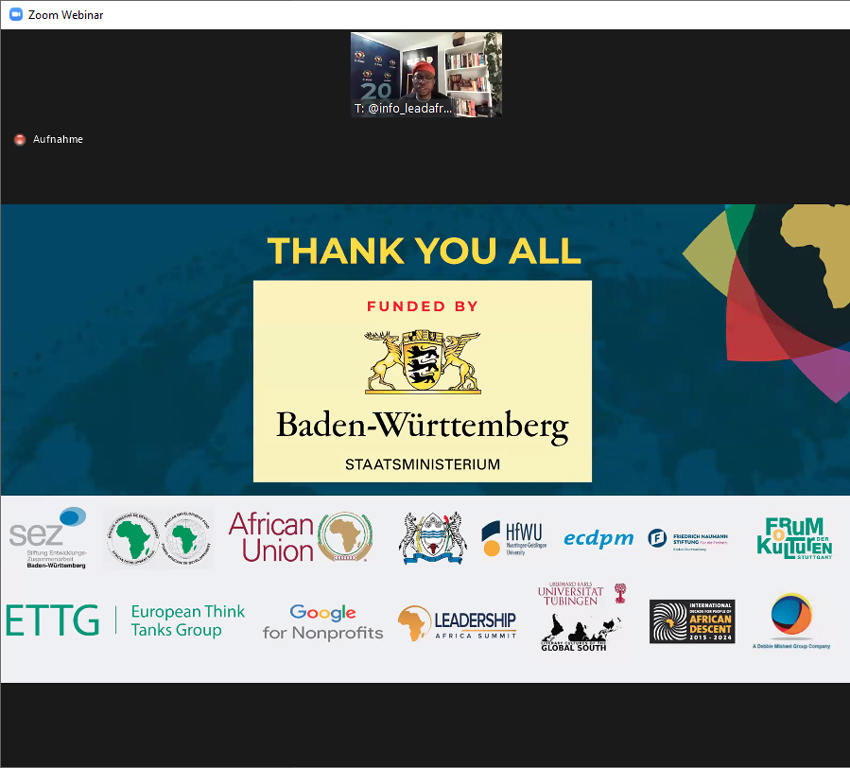
Secondly, he called on the Europeans to tackle their policy incoherence in Africa. He pointed to agreements with African countries that negatively affect opportunities for Africans themselves, citing fishing agreements which destroy the livelihood of African fishermen in countries such as Senegal, a major driver of irregular migration from the country.
“Finally, EU should be more modest in its intentions in Africa as Europe had its own domestic problems,” he said, calling on Europe to break with its patronising relationship with “African leaders who are not development-oriented” for their own interests.
Closing his submission, the development expert said EU should reach out to non-state development actors in African societies through the instrumentality of its development aid programmes.
Among other keynote speakers at the 2-day conference were Khaled Sheriff, a Vice President at the Africa Development Bank (AfDB); Prof Atsufumi Yokoi, Vice President, Okayama University, Tokyo; Sunil Geness, Director, Global Government Affairs & CSR, SAP Africa; and Engr Ifeanyi F. Ogochuckwu, Chief Technology Strategist, Debbie Mishael Group, South Africa.
Prof Andreas Schittenhelm, Professor of International Finance Management at the Nuertingen-Geislingen University, Germany; Marco Kpeglo LeRoc, Director, Leadership Africa Summit, USA; and Dr Knox Chitiyo, Associate Fellow, Africa Programme, Royal Institute of International Affairs, Chatham House, London, among others, also addressed the forum.
Lead Africa International seeks to raise awareness as to how best multilateral collaborations can support Africa to address post-Covid recovery challenges against the danger that the continent’s traditional partners could be distracted by their own domestic problems.
G-PAD 2020 makes it clear that Africa would need international partnerships as it marshals policies and projects to confront issues such as attracting financial inflows, continuing its infrastructure development and increasing the productive capacity of its economies. And that it is in the mutual interest of both Europe and Africa that the continent is not neglected even as the Europeans tackle their own domestic problems.
Femi Awoniyi
ALSO READ
G-PAD 2020: How digitalisation can support Africa’s post-Covid recovery
 THE AFRICAN COURIER. Reporting Africa and its Diaspora! The African Courier is an international magazine published in Germany to report on Africa and the Diaspora African experience. The first issue of the bimonthly magazine appeared on the newsstands on 15 February 1998. The African Courier is a communication forum for European-African political, economic and cultural exchanges, and a voice for Africa in Europe.
THE AFRICAN COURIER. Reporting Africa and its Diaspora! The African Courier is an international magazine published in Germany to report on Africa and the Diaspora African experience. The first issue of the bimonthly magazine appeared on the newsstands on 15 February 1998. The African Courier is a communication forum for European-African political, economic and cultural exchanges, and a voice for Africa in Europe.

























